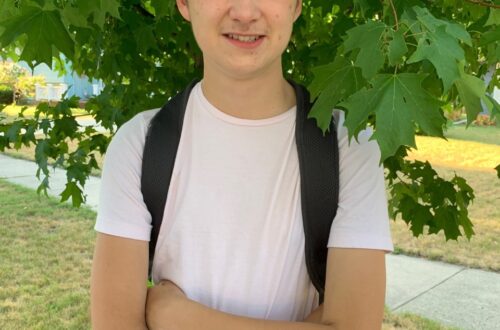
A Glossary of Agencies and Services
Thursday of last week we met J’s case manager at Developmental Disabilities (Human Services, state of North Dakota) for his yearly check in. And as we chatted, I asked his case manager all the questions—again. It’s been about 18 years since I’ve been first introduced to all of the options and programming for individuals with special needs, and it feels like it was much simpler. Most of the programming J received was through the public school system. He was shuffled into early intervention education even before his preschool years, and he’s rode the public school programming all the way up until graduation.
After graduation, we’re learning it all over again. And it’s WAY more complicated. Because now this special needs child is a special needs adult, and when you turn 18, the world looks at you like an adult, even if you still have special needs. So there’s a lot of agencies and programs to navigate.
I’ve made a glossary of sorts—for you who are curious and want to know how special needs adults receive services, for you of a special needs child who is near that adult transition period (or who is going through it now), and for me. Because it’s hard to keep all of this straight sometimes. Me and J’s case manager talked over an hour about my questions. They’re questions I’ve asked before, I’m sure. But it’s hard to keep the acronyms and agencies straight. J’s case manager kindly said, “it took me almost 2 years to keep all of this straight when I first started this job.”

The Main Players (for now):
J’s case manager: J’s case manager is no longer an educator from the public school system. Our case manager comes from an agency called Developmental Disabilities Human Services through the State of North Dakota. From now on, J will have a case manager from this agency overseeing all of his programming, from the rest of his Fargo Public Schools 18 plus program to his transitions into other future programming.
Fargo Public Schools: J is currently attending the 18 plus program through Fargo Public Schools. He learns independent living skills, job skills, and learns how to interact in the community through community field trips. He will be in this program until the end of the school year he turns 21.
Job Skills Contracting Agencies:
-Community Living Services (aka CLS) is a contracting agency that works with Fargo Public Schools. They are the ones that provide the job coaching skills in his school setting.
-Vocational Rehab (aka Voc Rehab). Things they do: help with accommodations on the worksite and help pay for specialty items for the job (uniforms, etc). Voc Rehab takes over the role of CLS at graduation. During J’s last IEP, our case manager and J’s school team will help include voc rehab in the transition process.
-There are some limitations to voc rehab. Typically, voc rehab provides services up until about age 26. There is also a formula voc rehab uses to determine how many support hours J will need on the job. If J requires too many hours of support (according to the formula) then voc rehab will refer him back to developmental disabilities for job coaching, and job coaching will be provided by developmental disabilities (DD). DD can provide coaching services by setting up J with other young adults with developmental disabilities and they typically work in a small group (so the job coach can help multiple young adults at the same time, similar to the way CLS and their job coach works with J and a small group of students at his current worksite (American Gold Gym).
Day Services:
-Day services are activities and community groups that J can participate in when he is not working at his job.
-right now J receives, in a way, “day services” through his 18 plus program through Fargo Public Schools. While J is not working, he learns independent living skills, goes on excursions in the community (library, grocery store, etc).
-Just before J graduates out of the 18 plus program, our case manager will provide us with a list of agencies that provide day services and give us a tour of them. We can then decide which options work best for J, how many hours we want him to spend in day services, etc.
Support Staff:
-many families with a loved one with special needs often use support staff (to help bridge the supervision gap between after school and the time parents come home from work, or, because special needs family members often involve a lot of emotional/mental support, give relief to parents or family members who are caregiving in these ways). Up until this point, our family has never used support staff. According to our case manager, it’s been really hard to get reliable support staff during COVID.
-J will always have the option to access support staff. Depending on what the future holds for him and what sort of living arrangements (living at home, an apartment alone, apartment with roommates, group home living) we can arrange for support staff as we need it. For example, if he’s living in an apartment alone, he can have support staff check in on him and help him run errands with groceries. Support staff can also be used in a roommate situation. Support staff can be available to sleep overnight and then leave in the day. It sounds like our options can be really flexible depending on J’s needs. I think it will be a few years yet until we figure out those sorts of plans, but it’s nice to know the support staff option is available.
There are dozens of things we still need to do over the next few years (apply for housing if J is not living at home, apply for social security, figure out his health care coverage situation, etc). But for now, I feel a little more confident moving forward. I’m sure I’ll figure out more of the options and nuances available through each of these three programs, but the biggest relief I found after my visit with J’s case manager is that no matter what happens, there is an agency or arrangement that can cover J’s needs at all times.
The rest, I guess, we will figure out as we go!




